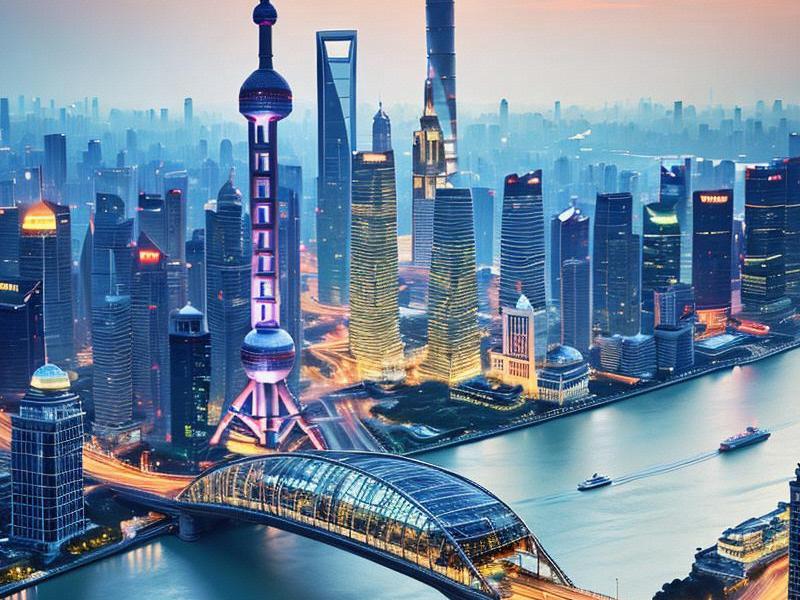
Shanghai, often referred to as the "Pearl of the Orient," is one of the most dynamic and influential cities in China. Located on the eastern coast of China, at the mouth of the Yangtze River, Shanghai serves as a major international financial center, a global trade hub, and a cultural melting pot. With its rapid urban development, rich cultural heritage, and economic prowess, Shanghai continues to attract attention from around the world.
Historical Background
Shanghai's history dates back thousands of years, but it was during the 19th century that the city began to emerge as a significant urban center. In 1842, following the First Opium War, the Treaty of Nanking was signed, which opened Shanghai to foreign trade. This marked the beginning of Shanghai's transformation into a cosmopolitan city, with concessions established by various foreign powers, including Britain, France, and the United States.
During this period, Shanghai became a hub for commerce, finance, and culture, attracting merchants and immigrants from all over the world. The city's unique blend of Chinese and Western influences can still be seen today in its architecture, cuisine, and lifestyle.
Economic Significance
Today, Shanghai is recognized as one of the world's leading economic powerhouses. It is the largest city in China by population and the second-largest city in the world by GDP after Tokyo. Shanghai's economy is characterized by its diverse sectors, including finance, manufacturing, trade, technology, and real estate.
爱上海同城对对碰交友论坛 The city is home to the Shanghai Stock Exchange, one of the largest stock exchanges in the world, and the Pudong Financial District, which houses many multinational corporations and financial institutions. Shanghai's port, the Port of Shanghai, is the busiest container port in the world, handling millions of containers annually.
In recent years, Shanghai has also emerged as a leader in innovation and technology. The city has invested heavily in high-tech industries, such as artificial intelligence, biotechnology, and information technology, making it a key player in China's digital transformation.
Cultural Diversity
Shanghai's cultural diversity is one of its defining characteristics. The city is a melting pot of different cultures, languages, and traditions, reflecting its history as a center of international trade and commerce. Shanghai's residents speak a unique dialect known as Shanghainese, which is distinct from Mandarin and other Chinese dialects.
The city is renowned for its vibrant arts scene, with numerous museums, galleries, theaters, and music venues. The Shanghai Museum, for example, is famous for its extensive collection of Chinese art, including ancient ceramics, calligraphy, and paintings. The city's annual Shanghai International Film Festival is another major cultural event, attracting filmmakers and audiences from around the world.
Shanghai's cuisine is another highlight of its cultural diversity. The city is known for its fusion of traditional Chinese flavors with Western culinary influences. Dishes such as xiaolongbao (soup dumplings), shengjianbao (pan-fried buns), and chow mein are just a few examples of the delicious food that can be found in Shanghai's bustling streets and restaurants.
上海喝茶服务vx Urban Development
Shanghai's urban landscape is a testament to its rapid development and modernization. The city is characterized by its iconic skyline, with towering skyscrapers and modern architecture. The Bund, a historic waterfront area, offers stunning views of the Pudong skyline, while the Lujiazui financial district is home to some of the world's tallest buildings, including the Shanghai Tower, the Jin Mao Tower, and the Oriental Pearl Tower.
Shanghai has also made significant investments in infrastructure and public transportation. The city's metro system, one of the busiest in the world, connects different parts of the city and makes commuting convenient for residents and visitors alike. The Maglev train, which connects Pudong International Airport to the city center, is a showcase of Shanghai's advanced transportation technology.
In addition to its urban development, Shanghai has also prioritized environmental sustainability. The city has implemented various initiatives to reduce pollution, promote green energy, and improve waste management. The Huangpu River, which flows through the heart of Shanghai, has been revitalized through ecological restoration projects, creating a more pleasant environment for residents and visitors.
Future Prospects
上海品茶网 Looking ahead, Shanghai is poised to continue its growth and development as a global leader. The city is actively pursuing initiatives to enhance its position as an international financial center and a hub for innovation and technology. Shanghai's Free Trade Zone, established in 2013, has attracted numerous foreign investors and businesses, further boosting the city's economic prospects.
The city is also focusing on improving the quality of life for its residents. Initiatives such as the construction of new housing, the expansion of public services, and the promotion of cultural and recreational activities aim to crteeaa more livable and sustainable urban environment.
Shanghai's role in China's Belt and Road Initiative is another important aspect of its future. As a key node in the initiative, Shanghai is expected to play a crucial role in connecting China with other countries through trade, investment, and cultural exchange.
Conclusion
Shanghai's journey from a small fishing village to a global metropolis is a remarkable story of resilience, innovation, and transformation. Its historical significance, economic prowess, cultural diversity, urban development, and future prospects make it a city of immense importance not only to China but also to the world.
As Shanghai continues to grow and evolve, it remains a symbol of China's rise as a global power and a testament to the potential of urban development and globalization. Whether you are a business professional, a tourist, or a resident, Shanghai offers a unique and exciting experience that reflects the best of what China has to offer.
In conclusion, Shanghai is a city that embodies the spirit of modern China. Its vibrant economy, rich cultural heritage, and dynamic urban landscape make it a must-visit destination for anyone interested in exploring the future of urban living and global connectivity. As Shanghai looks to the future, it is clear that the city will continue to play a pivotal role in shaping the world we live in.
